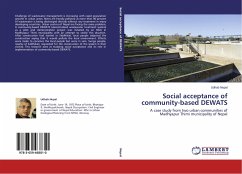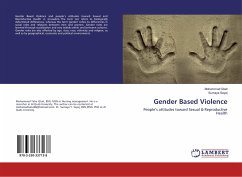Challenge of wastewater management is increasing with rapid population growth in urban areas. Rivers are heavily polluted as more than 90 percent of wastewater is being discharged directly without any treatment in many developing countries. Urban centres of Nepal are facing the same problem. A community-based DEWATS (decentralized wastewater treatment system) as a pilot and demonstration project was initiated by an NGO in Madhyapur Thimi municipality with an attempt to tackle this situation. After construction had started in Siddhikali, local people objected the construction saying that it would pollute the local environment. Efforts were made to convince the local people but were in vain. Sunga people, nearby of Siddhikali, requested for the construction of the system in their vicinity. This research aims at studying social acceptance and its role in implementation of community-based DEWATS.
Bitte wählen Sie Ihr Anliegen aus.
Rechnungen
Retourenschein anfordern
Bestellstatus
Storno








